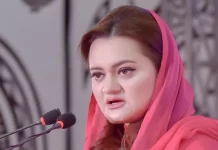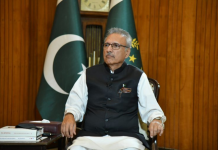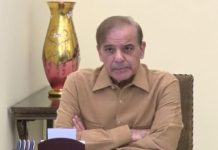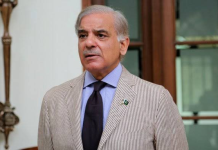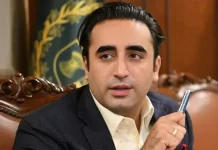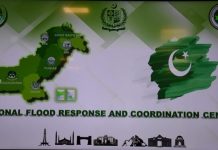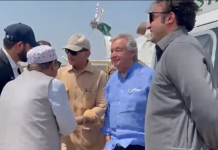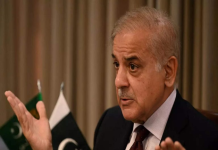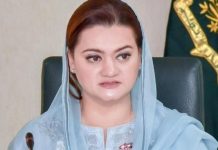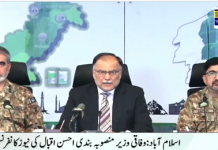Almost eight decades ago, Muslims of the Indian subcontinent set a goal to get a separate homeland where they could lead their lives with complete religious and cultural freedom, which they achieved after a historic struggle of seven years.
An independent state for the Muslim minority was the need of the hour as it was facing untold miseries and disgrace at the hands of British rulers and their Hindu subordinates, coupled with growing social and economic disparity between the two nations.
Realizing the ground realities, Muslim leaders gathered at the Minto Park Lahore [now Greater Iqbal Park where the monument of Minar-e-Pakistan is built], held a decisive session on March 23, 1940 and passed a unanimous resolution for a separate Muslim homeland, rejecting the idea of united India and endorsing the two-nation theory.
In his two-hour presidential address to the session participants, Quaid-e-Azam Muhammad Ali Jinnah narrated the events that had taken place in the past few months and concluded that Hindus and Muslims belonged to two different religious philosophies, social customs and literature.
“They neither inter-marry nor inter-dine together, and, indeed, they belong to two different civilizations that are based mainly on conflicting ideas and conceptions. Their concepts on life and of life are different. It is quite clear that Hindus and Muslims derive their inspiration from different sources of history.”
The Quaid said Hindus and Muslims had different epics, different heroes and different episodes. “Very often the hero of one is a foe of the other, and likewise, their victories and defeats overlap. To yoke together two such nations under a single state, one as a numerical minority and the other as a majority must lead to growing discontent and final destruction of any fabric that may be so built up for the government of such a state.”
He was of the view that “Mussalmans are a nation according to any definition of nationhood. We wish our people to develop to the fullest spiritual, cultural, economic, social and political life in a way that we think best and in consonance with our own ideals and according to the genius of our people”.
With unflinching resolve and great sacrifices rendered by Muslims of the sub-continent under the dynamic leadership of Quaid-e-Azam Muhammad Ali Jinnah, Pakistan came into being on August 14, 1947 and appeared on the world map as a sovereign state.
Since then, Pakistan defended its independence and faced all problems and challenges bravely, failing all the sinister designs of enemies on every front; besides laying a solid foundation for sustained progress towards its cherished goal.
Every year, the nation celebrates March 23 as Pakistan Day with a renewed pledge to make the country the strongest by all means, especially on economic and defence fronts so that no one could even think of casting an evil eye on the motherland.
“Let us express our firm resolve to continue the legacy and heritage bequeathed to us by our founding fathers and by following in their footsteps to make our country a cradle of peace, progress and stability,” President Dr Arif Alvi, in his previous Pakistan Day message, said.
Prime Minister Imran Khan always felt pride and says, “The Pakistani nation has the capability to face any ordeal.”
Talking to APP, Speaker National Assembly Asad Qaiser said March 23 had a great significance in the national history and he believed it was the day when “we celebrate our independence in a befitting manner.”
The present government, he said, was taking far-reaching steps to transform the country into a state in line with the vision of the Quaid-e-Azam .
Appreciating the role of the Armed Forces in strengthening the national defence, he termed Pakistan Army a ‘great and valuable asset’ of the country that always played an important role in ensuring national integrity and sovereignty.
He paid homage to ‘Jawans’ who sacrificed their lives in line of duty at the frontiers while defending the motherland.
Minister for Parliamentary Affairs Ali Muhammad Khan highlighted background and objectives of the Pakistan Day, raising a number of poignant questions about reasoning behind creation and meaning of Pakistan, its justice, social and economic systems.
Now, it is the time of doing something practical, not raising mere emotional slogans. That is why this nation has chosen Imran Khan as its prime minister for practical work,” he said.
The minister underlined the need for promoting the culture of self-accountability in the society.
The minister said his grandfather Pir Muhammad Khan was a worker of the All India Muslim League that had succeeded in creation of Pakistan, and now Allah Almighty had given a chance to his grandson to transform the country into a real Islamic welfare state and protect it from the corrupt elements. “We have come out to save the country, let’s save it together, revive the spirit of Pakistan Movement.”
This year on March 23, the day would be marked in a befitting manner, under anti-coronavirus Standard Operating Procedures (SOPs), for which a number of activities have been planned across the country especially the parade of Armed Forces with a spectacular display of military prowess and professional excellence at the Shakarparian Parade Ground.
The day will dawn with special prayers for the progress and prosperity of the country, followed by a 31-gun salute in the federal capital and a 21-gun salute in provincial capitals.
The national flag will be hoisted on major government buildings. Both print and electronic media would publish and broadcast special programmes highlighting the struggle of the forefathers of Pakistan and the importance of the day.

